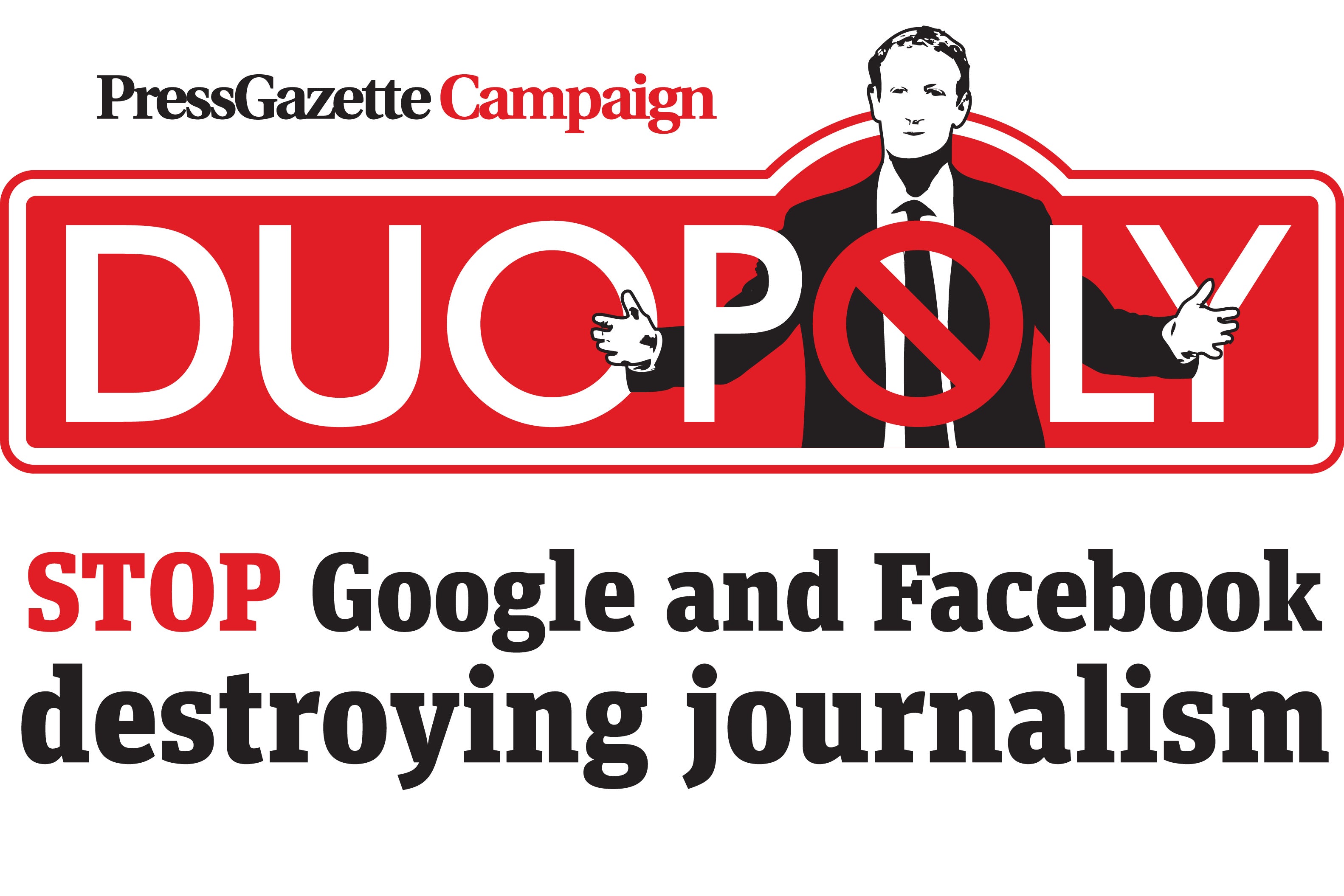
Internet giants such as Google should pay compensation for news content to fund the journalism that generates huge advertising revenues for them, Europe’s major press agencies have said.
In a joint letter, nine organisations – including the Press Association – called for MEPs and European Union officials to back plans which would help tackle the “disaster for the news industry” which has seen media organisations lose advertising revenue while internet giants have benefited.
The agencies said while the likes of Facebook and Google – known collectively as the Duopoly – play a crucial role in spreading news, they only offer the work done by others and do not pay for the cost of reporting.
Press Gazette launched a campaign in April, calling on the Duopoly to stop destroying journalism and pay more back to news publishers on whose content they rely.
The letter from the news agencies, published in Le Monde, warned “the very business of credible, free reporting is threatened” because “soon the news media will be unable to finance it”.
“Facebook has said on numerous occasions its goal is to be the world’s biggest media provider. And yet neither Facebook nor Google has a newsroom,” the agencies said.
They had “no teams of reporters in Syria risking their lives to show the true face of war” or editors to check the accuracy and impartiality of stories.
“Even if they undeniably play a crucial democratic role by spreading news worldwide, reporting the news is not their business,” the agencies said.
By taking in up to 70 per cent of online advertising, their “profits from the news business are booming while those of the media are collapsing”.
The call for action, led by France’s AFP and signed by press agencies from Germany, Spain, Italy, Sweden, Austria, the Netherlands and Belgium as well as the Press Association, urged progress on a European Commission proposal on the issue.
“For the first time in the digital age, the planned directive would oblige the big internet players to pay compensation to the news media for the millions of stories on their platforms that are visited by people seeking news,” the agencies said.
The proposed directive has been resisted by MEPs and protracted negotiations to find a compromise have been taking place between the EU’s member states.
The agencies said: “Some in the European Parliament are concerned about the planned directive. They fear the public right to ‘free news’ may be at risk.
“But we should be clear about who is being targeted. People browsing the internet will not be affected. They will pay no more than they do today.
“Rather, those who have benefited disproportionately from advertising revenues should repatriate a meaningful share of these revenues to the media which funds content origination.”
Email pged@pressgazette.co.uk to point out mistakes, provide story tips or send in a letter for publication on our "Letters Page" blog
